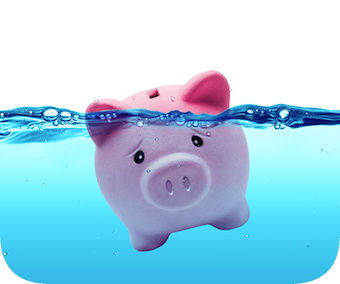In the early 2000’s, finance companies got in trouble for targeting young people with gifts like pizza and free t-shirts in order to get them to apply for credit cards with high interest rates and big fees. These fee-heavy accounts made it easy to turn a small debt into a very large debt, leaving some college students bankrupt before they could start their careers. In 2010, the U.S. made it illegal to give free gifts for credit card applications. Since then, finance companies have looked for new ways to attract younger customers without breaking federal rules.
Then the pandemic brought a global shift to online shopping, and consumers started using “Buy Now, Pay Later” options to fill the gaps between paychecks. Also known as BNPL, they let shoppers break up big payments into installments or to delay payment to a later date. BNPL became popular with young people who want to pay off big purchases — like concert tickets or furniture — over time. Unlike credit cards, BNPLs don’t charge interest, but they do charge late fees, which can still create long-term financial consequences for users who fall behind. Experts have warned that BNPL puts young people at risk of racking up debt without fully considering the risks.
Today, BNPL is extending beyond big-ticket items to everyday essentials. Klarna, for example, has partnered with DoorDash to offer installment payments for takeout food and groceries. Like the credit card promotions of the early 2000s, these partnerships target young consumers by linking financial tools to purchases they already want to make. (Instead of offering a free pizza, companies now make it possible to finance one.) By integrating BNPL into more apps, companies now encourage customers to make borrowing a routine part of everyday spending.
Questions:
- Why did the U.S. make it illegal to offer free gifts for credit card applications?
- Do you think BNPL services like Klarna should face regulation for potentially endangering young people with debt? Why or why not?
Kate Gibson, “DoorDash and Klarna Partner To Offer an Eat Now, Pay Later Plan,” CBS News, March 21, 2025; Jordan Valinsky, “DoorDash Will Let Users Buy Now, Pay Lataer for Fast Food, a Possible Worrying Sign for the Economy,” CNN, March 21, 2025.

